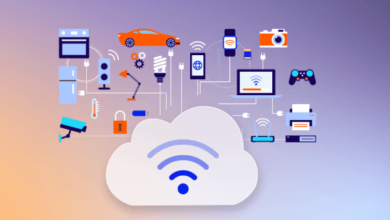Quantum Computing Breakthroughs: The Future of Problem-Solving

Quantum computing is no longer confined to the realm of theoretical physics—it’s rapidly transforming into a practical tool capable of solving complex problems that were once deemed unsolvable. With breakthroughs occurring at an unprecedented pace, this technology holds the potential to revolutionize industries and redefine the future of problem-solving.
What is Quantum Computing?
At its core, quantum computing leverages the principles of quantum mechanics—such as superposition, entanglement, and quantum interference—to process information. Unlike classical computers, which use bits to represent either a 0 or a 1, quantum computers use qubits, which can exist in multiple states simultaneously.
This unique property allows quantum computers to perform parallel computations, making them exceptionally powerful for certain tasks like optimization, simulation, and cryptography.
History of Quantum Computing
The journey of quantum computing began with theoretical concepts introduced by pioneers like Richard Feynman and David Deutsch in the 1980s. Key milestones include:
- 1985: David Deutsch proposes the concept of a universal quantum computer.
- 1994: Peter Shor develops Shor’s algorithm, demonstrating quantum computers’ ability to break classical encryption.
- 2019: Google achieves quantum supremacy, solving a problem in minutes that would take classical supercomputers thousands of years.
These milestones underscore how far quantum computing has progressed, transitioning from theory to tangible breakthroughs.
How Quantum Computing Works
Quantum computers operate using quantum gates, which manipulate qubits to perform calculations. Unlike classical logic gates, quantum gates allow qubits to be in superpositions and interact in ways that classical bits cannot.
Key components include:
- Superposition: Enables qubits to exist in multiple states simultaneously.
- Entanglement: Links qubits in such a way that the state of one instantly affects the state of another, even at a distance.
- Quantum Algorithms: Examples include Shor’s algorithm for factoring and Grover’s algorithm for search optimization.
These principles enable quantum computers to tackle problems that scale exponentially in complexity.
Breakthroughs in Quantum Computing
Recent advancements highlight the field’s rapid growth:
- Quantum Supremacy: Achieved by Google, proving quantum computers can outperform classical counterparts in specific tasks.
- Error Correction: Progress in reducing quantum error rates, a significant barrier to scalability.
- Hardware Innovations: Development of stable quantum processors by IBM, Honeywell, and other leaders.
These breakthroughs pave the way for practical applications across industries.
Applications of Quantum Computing
Quantum computing’s potential spans a variety of fields:
- Healthcare: Drug discovery, protein folding simulations, and personalized medicine.
- Finance: Portfolio optimization, risk analysis, and fraud detection.
- Cryptography: Revolutionizing encryption methods and securing communication.
- Logistics: Optimizing supply chains and improving traffic management systems.
These applications illustrate the transformative power of quantum technology.
Quantum Computing in Artificial Intelligence
Artificial Intelligence (AI) benefits significantly from quantum computing:
- Enhanced Machine Learning: Accelerating data analysis and pattern recognition.
- Optimization Problems: Solving complex challenges like neural network training.
- Big Data: Processing vast datasets faster than classical systems.
The synergy between quantum computing and AI promises groundbreaking advancements in technology.
Quantum Cryptography
Quantum computing has dual implications for cryptography:
- Breaking Classical Encryption: Shor’s algorithm can potentially render current encryption methods obsolete.
- Quantum Key Distribution (QKD): Offers ultra-secure communication channels immune to eavesdropping.
As quantum computers evolve, they’ll redefine data security protocols worldwide.
Challenges in Quantum Computing
Despite its promise, quantum computing faces significant challenges:
- Error Rates: Quantum systems are prone to noise and decoherence.
- Scalability: Building quantum processors with large numbers of stable qubits remains complex.
- High Costs: Developing and maintaining quantum systems is resource-intensive.
Addressing these challenges is critical for quantum computing to achieve widespread adoption.
Top Players in Quantum Computing
Several companies and institutions are leading the charge:
- IBM: With its Quantum Network and accessible cloud-based quantum systems.
- Google: Achieved quantum supremacy with its Sycamore processor.
- Microsoft: Focused on topological qubits for robust error correction.
- Rigetti Computing: Developing integrated quantum-classical systems.
These organizations are shaping the future of quantum innovation.
Government and Private Sector Investments
Governments and corporations are investing heavily in quantum research:
- United States: National Quantum Initiative Act supports quantum advancements.
- China: Leading in quantum communication and satellite-based QKD.
- European Union: Quantum Flagship initiative funds research across member states.
Such investments highlight the global race to harness quantum computing’s potential.
Ethical and Societal Implications
As with any disruptive technology, quantum computing raises ethical questions:
- Data Privacy: How do we protect sensitive information in a quantum era?
- Technological Inequality: Ensuring equal access to quantum advancements.
- Global Security: Preventing misuse by malicious actors.
Balancing innovation with responsible use is essential.
Quantum Computing vs. Classical Computing
While classical computers excel at sequential tasks, quantum computers are better suited for problems involving vast possibilities. Both technologies will likely coexist, complementing each other in specific domains.
Future Prospects of Quantum Computing
The future of quantum computing is both exciting and uncertain. Experts predict:
- Commercially viable quantum computers within the next decade.
- Breakthroughs in solving global challenges like climate modeling and resource optimization.
- Integration with existing technologies for seamless problem-solving.
Quantum computing’s full potential is yet to be realized, but its trajectory is undeniably transformative.
Conclusion
Quantum computing represents a paradigm shift in how we approach complex problems. From scientific research to global security, its impact is far-reaching. As breakthroughs continue to unfold, quantum computing stands poised to redefine problem-solving across industries, unlocking possibilities we’ve only begun to imagine.
FAQs
- What is quantum computing?
Quantum computing uses principles of quantum mechanics to perform complex calculations faster than classical computers. - How is it different from classical computing?
Classical computers use bits (0s and 1s), while quantum computers use qubits, which can exist in multiple states simultaneously. - What are qubits?
Qubits are the fundamental units of quantum information, enabling superposition and entanglement. - How will quantum computing affect cryptography?
It can break classical encryption but also enables quantum-safe cryptographic methods like QKD. - Which companies are leading in quantum research?
IBM, Google, Microsoft, and Rigetti are among the key players in quantum computing. - When will quantum computing become mainstream?
Experts predict practical quantum computers within the next decade, though mainstream adoption may take longer.



